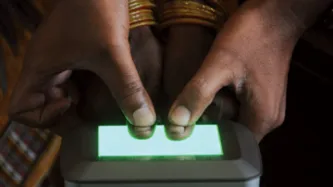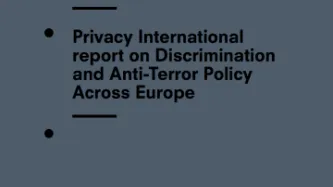Search
Content type: News & Analysis
One of the UN's largest aid programmes just signed a deal with the CIA-backed data monolith Palantir
Last week, the UN's World Food Programme (WFP) announced a partnership with Palantir, the controversial US-based data analytics company with deep links to US intelligence agencies. This is a deal that has serious consequences for the privacy and security of the 90-million-plus recipients of WFP aid each year. The reaction to the news that WFP and Palantir have entered into this partnership, amongst many in the data and development community was immediate, and visceral. After all, Palantir has a…
Content type: News & Analysis
3 June 2014
The following article written by Carly Nyst, Privacy International's Legal Director, originially appeared on the Future Tense blog on Slate:
The news that the CIA is no longer using vaccination programs as a front for spying operations may come as a relief to many humanitarian workers. Yet their fears should not be completely assuaged, because the CIA’s activities—which undoubtedly threatened the safety of humanitarian workers and those they seek to help—pale in…
Content type: News & Analysis
The development agenda is heralding a new cure-all for humanitarian and development challenges – data.
In the latest incarnation of the development world’s dominant paradigm, ICTs for Development, data is being embraced, analysed and monitored by companies, humanitarian organisations, aid donors and governments alike. Yet despite the promises of data evangelists that big and open data can revolutionise innovation, education, health care and infrastructure, the potential risks of…
Content type: News & Analysis
The drive for accountability in aid spending has put humanitarian and development agencies under pressure to collect an ever-growing amount of data about those who receive their assistance. Donors also increasingly demand that new technologies are deployed to ensure aid reaches those it is targeted at; preventing people from fraudulently using refugees’ identities, for example, was a key motivation behind UNHCR’s recent introduction of biometric technology to register Syrian…
Content type: News & Analysis
Below is an excerpt of an article that recently appeared on Slate, written by our partner Kevin Donovon, a researcher at the University of Cape Town, and Carly Nyst, Head of International Advocacy at Privacy International:
"Move over, mobile phones. There’s a new technological fix for poverty: biometric identification. Speaking at the World Bank on April 24, Nandan Nilekani, director of India’s universal identification scheme, promised that the project will be “transformational.” It “uses…
Content type: Report
Race relations across European states are usually far from ideal. However in law, European countries appear to grant Europeans ideal protections against discrimination. There are mounting tensions with ethnic and minority communities in countless European countries, with particular suspicion and aggression pointed towards the Roma people, Travellers, Northern Africans, Turks, Jehovah’s Witnesses, and people of Islamic and other faiths. Increasingly these groups are finding safe havens behind…





